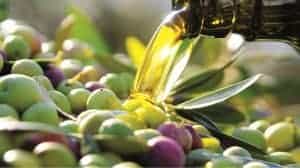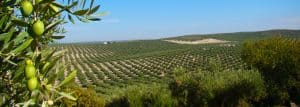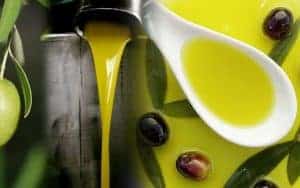The very first thing that catch your eyes when you are travelling in Andalusia, no matter if you land in airport or making a road trip, it is an infinite sea of olive groves spread across the countryside. And this is not surprising as the olive tree is native to the Mediterranean basin, it is a very resilient tree that withstands difficult climates, particularly warm ones, very well. Olive trees have been grown around the Mediterranean since the 8th millennium BC.And there are archeological evidences proving the fact that olive oil production in Iberian Peninsula began as early as 4000 BC. And it is commonly believed the Romans were the ones to introduce olive oil production to the modern territory of Spain.
Despite the universally recognised fact that olive oil is extremely beneficial and healthy, tasty and eco friendly we would like to highlight some fascinating facts about olive oil you might not know.
10 facts about olive oil:
- Olive tree can live up to 2000 years
The first and the most outstanding facts is that the olive tree could live up to 2,000 years. And in general olive trees have an average lifespan of between 300-600 years! Olives grow very slowly, and over many years the trunk can attain a considerable diameter. The root system of olive is robust and capable of regenerating the tree even if the above-ground structure is destroyed. The older the olive tree, the broader and more gnarled the trunk becomes. Many olive trees in the groves around the Mediterranean are said to be hundreds of years old and some individual trees are claimed to have an age of 2,000 years; in some cases, like in Algarve, Portugal, this has been scientifically verified. - Spain is the biggest olive oil producer
Nowadays almost 95% of the world’s olive oil is produced in the Mediterranean region and Spain is recognised to be the biggest olive oil producer with nearly a half of world olive oil supply. The climate in Andalusia makes it the perfect place for olive trees to grow, and the champion among all the provinces in terms of olive oil production is Jaén, about 70% of all Spanish olive oil comes from this province.
The other two major olive oil producers in the world are Italy with 17% and Greece with 11% of world supply. And just for comparison US produces only about 0.3% of the world’s olive oil. - Greece is the biggest olive oil consumer
Surprisingly being the biggest olive oil producer Spain is only the second biggest consumer of olive oil worldwide. Greeks consume more olive oil than another country – about 20 litres per person annually! Other high-consuming countries include Spain with approximately 13 litres per capita and Italy where the consumption is about 11 litres per capita. - Olive oil is a juice
Technically olive oil is a fruit juice! It is crushed like other fruits; oranges, lemons etc. Olives are fruit, and olive oil is that fruit’s juice. Juice is never better than when it’s fresh squeezed and drank right after production. The same goes for olive oil. - The harvest is once a year
Harvesting is generally takes place when the olives are at their best condition to preserve the quality and low acidity levels at the same time. The so called Early Harvest starts in mid to late October. Early harvested olives are exceptionally high in antioxidants and polyphenols as they are gathered three quarters ripe containing higher level of chlorophyll. Then in late November and December starts the main harvest. Olives that are too ripe produce more oil but of lesser quality so in this case more is not a synonym to better. - Olives are handpicked
The olives traditionally were handpicked but today harvesting is performed by a variety of mechanical shakers that transmit vibrations to the tree branches causing the olives to drop into so called oil-nets. These nets are being wrapped around the tree trunk and when open form an umbrella-like catcher from which workers collect the fruit. - Each olive tree gives 4 litres of oil yearly
One olive tree can produce around 30 kilos of fruit which is approximately 4 litres of oil every year for hundreds of years. Variety and maturation are two of the most important factors that influence the quality and taste of olive oil. - Extra virgin is the highest quality scale for olive oils
Extra virgin olive oil comes from the first pressing of the olives with no chemicals used to extract the oil. The term Cold pressed means that the oil was not heated over 27 °C during its processing and has kept all nutrients and vitamins. A general rule is the fewer time from harvest to processing the highest-grade oils are obtained, and ideally it should be less than 24 hours. This condition guarantees that the olive oil has a wonderful, fresh and pure taste. - Olive oil is a health & beauty product
Historically, olive oil was used not only for food, but for skin care and medicine as well. It is proved that olive oil is extremely high in oleic acid which is used to reduce blood pressure. Olive oil is high in polyphenols which is a type of antioxidant that helps protect your cells from damage. Olive oil is believed to have a protective effect even against cancer. - Olive oil fat is not bad!
Olive oil is an integral part of Spanish cuisine and it is the primary source of fat in the celebrated Mediterranean Diet. And it is quite surprising but various medical studies are proving that a frequent or better daily consumption of olive oil consequently leads to the reduction of the level of bad cholesterol (LDL) and increase of a good one (HDL).
Spanish kitchen would be incomplete without a tall bottle of olive oil. The beloved Aceite de oliva has been a part of the Spanish diet for thousands of years and today Spain is home to some of the world’s exquisite olive oils. We invite you to try and to get to know more interesting facts about finest Andalusian olive oils while our private Olive Oil and Wine Tasting in the heart of old town of Marbella.




